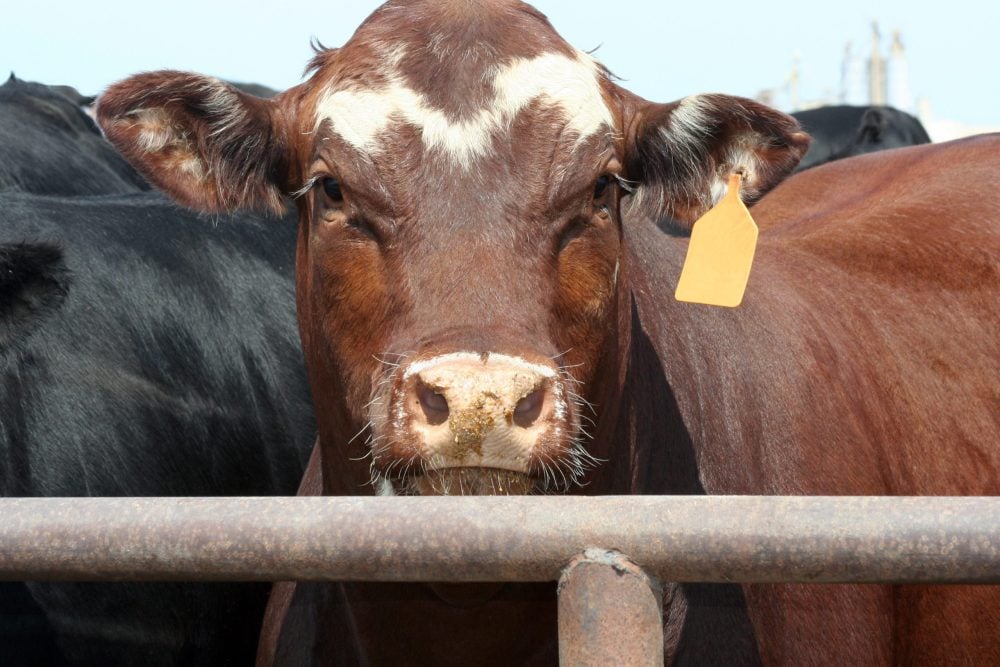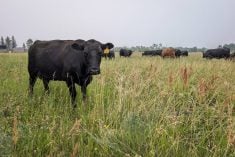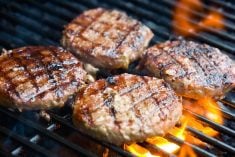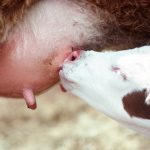Yearling prices in Western Canada reached their highest levels in two years as top-quality 800-pound steers in southern Alberta were trading in the range of $112 to $115 per hundredweight. Stronger fed cattle prices and tighter yearling numbers have resulted in the firmer tone. Lighter-weight 6-weight calves were being purchased in the range of $110 to $120/cwt at larger auction sales last week.
Canadian feeder cattle prices are 10 to 12 per cent higher than year-ago levels when valued in U.S. dollars, which has tempered export movement. U.S. cash feeder cattle prices were $2 to $4 lower than a week earlier, as above-normal temperatures in the major feeding regions has resulted in lower buying interest. U.S. feedlot operators don’t want to bring in replacement cattle with the extreme heat and lower feeding efficiences.
Read Also

U.S. livestock: Cattle futures plunge daily limits on beef price fears
Reuters — Most Chicago Mercantile Exchange live cattle and feeder cattle futures contracts fell their respective daily limits on Friday,…
Economic news headlines have also been quite negative with a spike in U.S. home foreclosures, a jump in weekly unemployment claims and lower consumer confidence. Feedlot managers in the U.S. are being extremely cautious when purchasing feeder cattle, as consumer income levels appear to be declining, which generally results in lower beef demand and softer fed cattle prices.
Despite the weaker economic data, ground beef prices made three-year highs in July but higher-end cuts of beef are hovering near two-year lows. The U.S. consumer remains in a frugal state of mind. Meat prices in general have diverged from lower consumer income levels because of the tighter supplies of pork and beef. Pork bellies also made new historical highs last week, largely due to lower available hog numbers.
Feedgrain prices appear to be trending higher, which will weigh on the feeder market. We need to see fed cattle prices over $100 before feedlots can warrant paying more for replacement cattle given current input costs. Fed steers were trading at $95 in the U.S. southern Plains, while Alberta steers reached up to $90 last week. However, deferred live cattle futures are over $100 for next April, which should keep 7- and 8-weight feeders well supported.
— Jerry Klassen is a commodity market analyst in Winnipeg and maintains an interest in the family feedlot in southern Alberta. He writes an in-depth biweekly commentary, Canadian Feedlot and Cattle Market Analysis, for feedlot operators in Canada. He can be reached by email at [email protected] or 204-287-8268 for questions or comments.
The material contained herein is for information purposes only and is not to be construed as an offer for the sale or purchase of securities, options and/or futures or futures options contracts. While the information in this publication cannot be guaranteed, it was obtained from sources believed to be reliable. The risk of loss in futures trading can be substantial. The article is an opinion only and may not be accurate about market direction in the future. Do not use this information to make buying or selling decision because adverse consequences may occur. This information may be wrong and may not be correct about current market conditions in all areas of Canada. This is an opinion only and not based on verified facts.
















